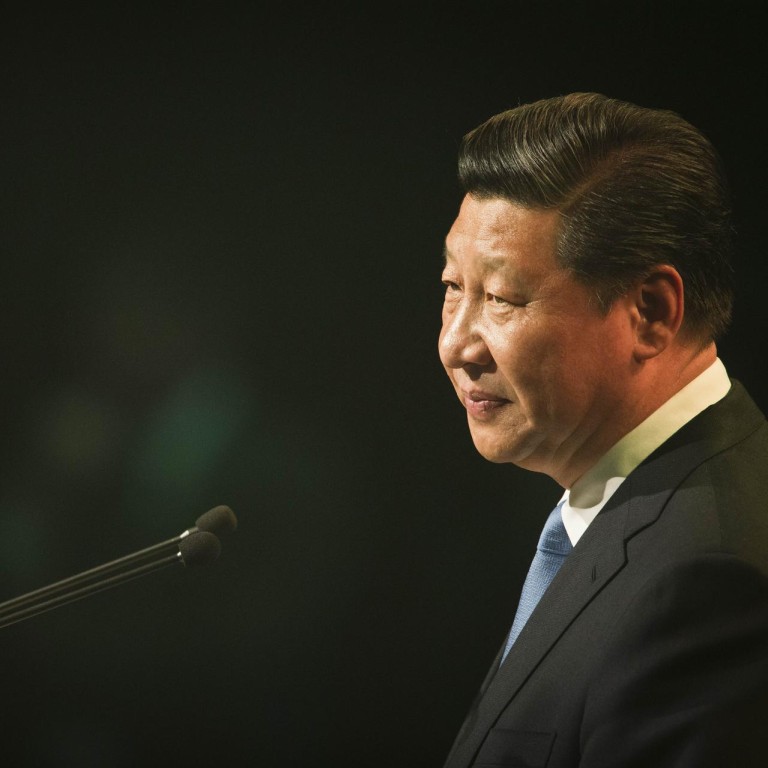
Xi Jinping's 'Four Comprehensives' show the depth of his leadership
Robert Lawrence Kuhn examines the 'Four Comprehensives' - a summary of the president's 'new kind of theory' that underscores the complexity of realising the Chinese Dream
With President Xi Jinping's state visit to Washington coming when most China watchers see the country as more autocratic domestically and more aggressive internationally, I've been in Beijing examining Xi's philosophy of governance and his new political theory, the "Four Comprehensives". The context is Xi's vision for "the great rejuvenation of the Chinese nation" - which he calls the Chinese Dream. The target year for its initial realisation is 2020, by when China is supposed to become "a moderately prosperous society".
With the Four Comprehensives, Xi is highlighting what he believes are the four most important policies to make the dream a reality: comprehensively build a moderately prosperous society; comprehensively deepen reform; comprehensively govern the nation according to law; and comprehensively strictly govern the Communist Party.
What is Xi's purpose for unifying the Four Comprehensives now? As I see it, they emerge for two pragmatic purposes: a sober summary of experiences and appraisal of current conditions, and a call to action. As only five years remain until 2020, the Four Comprehensives highlight the complexity of what it will take to achieve the Chinese Dream.
In economic terms, a "moderately prosperous society" has been defined as doubling the 2010 gross domestic product and per capita income. But Xi's vision goes beyond economics and embraces social, cultural and ecological indices.
A senior source said that the Four Comprehensives are a systematic approach to specific actions - not just a new theory, but "a new kind of theory". "The Four Comprehensives are a blueprint for urgent action," he said. "They relate to what is really happening now."
How does "comprehensively" enrich the long-standing goal of a "moderately prosperous society"? With about 82 million people still living in poverty, China must radically reduce imbalances between urban-rural and coastal-inland areas.
As for 300 million migrant workers - second-class citizens in the cities that they themselves built without access to equal health care, education and retirement benefits - Xi stressed that (residency registration) reform should be sped up so that migrants "can live in equality in urban areas".
Urban areas also demand comprehensive development. Take the regional plan to integrate Beijing, Tianjin and Hebei province - optimising population growth, traffic management, environmental protection, energy security and industrial upgrades.
The reason that deepening reform, the second comprehensive, is so critical is that reform is now entering "deep waters", where it is no longer possible to advance "stone by stone".
Although the rule of law, the third comprehensive, has long been a central objective in name, it has not worked that way in fact. Xi recognises that without the rule of law in real practice, there can be neither harmony nor stability. Of the many legal reforms in the 4th plenary of the party's 18th Central Committee in October, making the judicial system independent of local government and protected from undue influence was perhaps the most significant.
The fourth comprehensive, "strict discipline in the party", is Xi's hallmark - the goal of both the anti-corruption campaign and quashing the extravagances of officials. They aim to create three attitudes towards corruption: "Don't want. Don't do. Don't dare."
In effecting these policies, China's leaders have multiple objectives. Reducing government power by increasing market power will accelerate reform and reduce corruption. And the anti-corruption campaign purifies the party and breaks up interest groups that resist reform.
To achieve any of the Four Comprehensives is challenging - and all of them more so. But here we are witnessing the crystallisation, augmentation and maturation of Xi's political thinking on governance - and still we may not have its final form.

